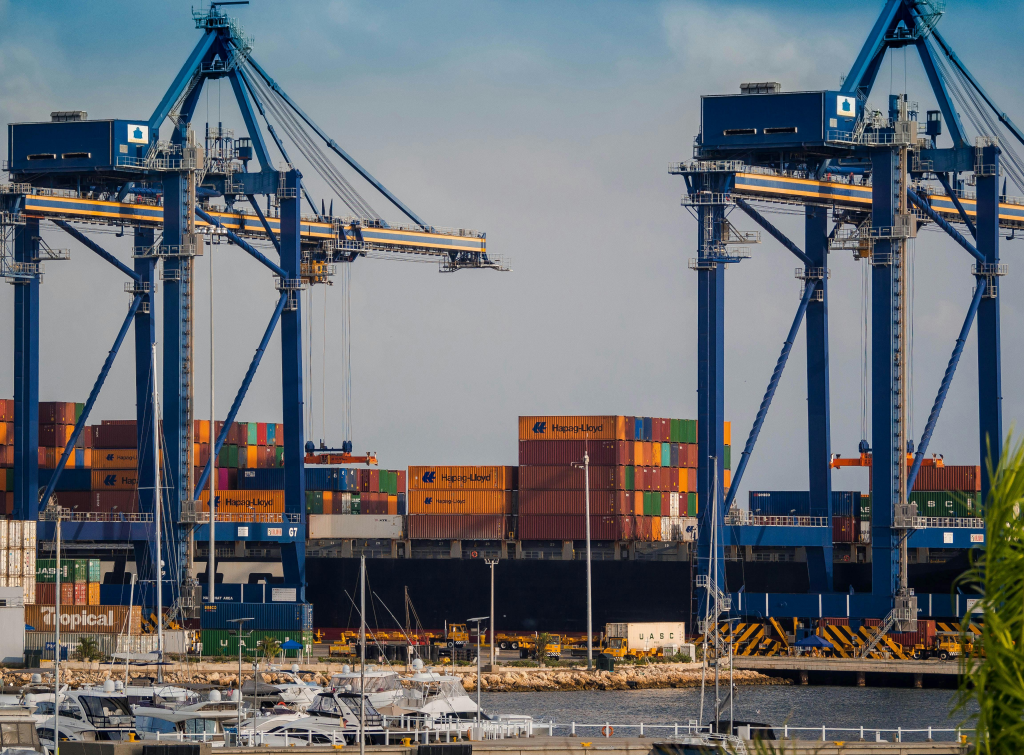By facilitating the smooth movement of products, data, and capital, logistics management is essential to the prosperity of companies in a wide range of sectors. Logistics is essential for the smooth operation of any industry that deals with the procurement, transportation, storage, and distribution of goods and services. This includes manufacturing, retail, healthcare, and e-commerce.

Lower costs, more efficient operations, happier customers, and more market competitiveness are all results of well-managed logistics. Logistics management allows companies to satisfy demand efficiently, cut inventory costs, shorten lead times, and react quickly to changes in the market by improving supply chain activities.
A detailed examination of logistics management’s significance is presented in this article, which emphasizes the role it plays in promoting sustainable growth and profitability as well as its influence on organizational performance.
Logistics Management | What Is It?
Efficient and effective forward and reverse flow and storage of goods, services, and related information from point of origin to point of consumption is the goal of logistics management, which involves planning, implementing, and controlling the process to fulfil client expectations. Processing orders, managing inventory, warehousing, transporting, packaging, and distributing are all part of it.
Ensuring the timely, accurate, and optimal delivery of high-quality products to their designated locations is the fundamental objective of logistics management. Logistics management aids companies in cutting costs, increasing customer happiness, and gaining a market edge by enhancing these procedures.
Integrating several functions to guarantee smooth operations is where logistics management shines in the supply chain. Strategic planning that takes into account the big picture is essential for logistics management that helps businesses achieve their objectives.
Logistics management systems (LMS) and other forms of technology can help with inventory tracking and management, order fulfilment, and transportation route optimization. If you want to make smart decisions, forecast demand, and boost operational efficiency, you need real-time data and analytics.
Managing connections with suppliers, distributors, and customers is also an important part of logistics management, which goes beyond simply moving products. More dependable and effective logistics operations can be achieved via the establishment of solid relationships and the maintenance of open lines of communication.
Another important part is risk management, which helps companies be ready for problems like supply chain delays, natural catastrophes, or geopolitical unrest.
Why Is Logistics Management Important?
Logistics management is crucial for several reasons that directly impact the success and efficiency of businesses:
- Cost Efficiency: Efficient logistics management helps in minimizing costs associated with transportation, inventory holding, storage, and handling. By optimizing routes, consolidating shipments, and managing inventory levels effectively, businesses can reduce overall operating expenses.
- Improved Customer Satisfaction: Timely delivery of goods and services is essential for customer satisfaction. Effective logistics management ensures that products reach customers on time and in good condition, leading to higher customer satisfaction and repeat business.
- Enhanced Productivity and Efficiency: Streamlined logistics processes lead to improved productivity within the organization. By reducing lead times, eliminating bottlenecks, and enhancing coordination between different departments, logistics management contributes to overall efficiency.
- Optimized Inventory Management: Logistics management plays a critical role in inventory control and management. By maintaining optimal inventory levels and implementing efficient warehousing and distribution strategies, businesses can minimize stockouts while avoiding overstock situations.
- Market Expansion: Effective logistics management enables businesses to expand into new markets and reach customers in different geographical locations. This is achieved through reliable transportation networks and efficient supply chain operations that support market diversification and growth.
- Risk Management and Resilience: Logistics management involves planning for contingencies and disruptions in supply chains, such as natural disasters or political instability. By having robust logistics strategies in place, businesses can mitigate risks and maintain operational resilience.
- Competitive Advantage: In today’s competitive business environment, efficient logistics management can provide a significant competitive advantage. Businesses that can deliver products faster, at lower costs, and with greater reliability are better positioned to succeed in the market.
- Environmental Sustainability: Sustainable logistics practices, such as optimizing transportation routes to reduce fuel consumption or using eco-friendly packaging materials, contribute to environmental conservation. This enhances corporate social responsibility efforts and improves brand reputation.
Logistics management is important because it ensures the smooth flow of goods and services throughout the supply chain, leading to cost savings, improved customer satisfaction, enhanced productivity, and competitive advantage for businesses. It is a cornerstone of effective operations and plays a pivotal role in driving business success and growth.
What Is Basic Logistics Management?
Basic logistics management refers to the fundamental principles and practices involved in overseeing the flow of goods and services from the point of origin to the point of consumption. It encompasses several key activities that ensure the efficient and effective movement and storage of materials within a supply chain. Here are the core elements of basic logistics management:
- Order Processing: This involves receiving, recording, and processing customer orders. It includes verifying order details, checking inventory availability, and preparing orders for shipment.
- Inventory Management: Basic logistics management includes managing inventory levels to ensure that adequate stock is available to meet demand without excess inventory. This involves inventory planning, stock replenishment, and maintaining inventory accuracy through regular audits.
- Warehousing and Storage: It includes the management of storage facilities where goods are kept before distribution. This involves organizing storage space, optimizing warehouse layouts, and ensuring proper handling and security of goods.
- Transportation: Logistics management includes arranging transportation for goods from suppliers to warehouses and from warehouses to customers. It involves selecting appropriate transportation modes (e.g., trucking, shipping, air freight) based on factors like cost, speed, and reliability.
- Packaging and Handling: This involves packaging goods for safe transportation and storage. It includes choosing appropriate packaging materials, labelling packages accurately, and handling goods carefully to prevent damage.
- Distribution: Basic logistics management ensures that goods are distributed to the right locations according to customer orders and delivery schedules. It involves route planning, scheduling deliveries, and coordinating with drivers or carriers.
- Information Management: Effective logistics management relies on accurate and timely information. It includes tracking shipments, monitoring inventory levels, and communicating order status to customers and other stakeholders.
- Customer Service: Basic logistics management involves providing excellent customer service throughout the supply chain process. This includes resolving customer inquiries, addressing complaints, and ensuring timely delivery to meet customer expectations.
- Performance Measurement: It involves evaluating key performance indicators (KPIs) such as delivery times, inventory turnover, and transportation costs. This helps in identifying areas for improvement and optimizing logistics processes.
- Risk Management: Basic logistics management includes assessing and managing risks that could disrupt supply chain operations. This may involve contingency planning, identifying alternative suppliers or transportation routes, and implementing strategies to mitigate risks.
Basic logistics management focuses on the foundational tasks and activities necessary to ensure the smooth and efficient flow of goods and services through the supply chain, from sourcing raw materials to delivering finished products to customers. It forms the backbone of supply chain operations and plays a critical role in supporting business operations and achieving customer satisfaction.
Conclusion
Any company involved in the transportation of products or services must have a basic understanding of logistics management. Order processing, tracking, warehousing, shipping, packaging, distributing, managing data, serving customers, measuring performance, and risk management are all essential parts of it. Successful management of these factors allows firms to save a tonne of money, run their operations more efficiently, satisfy their customers more, and stand out from the competition.
Timely and cost-effective product delivery to clients is the result of well-managed logistics, which keeps supply and demand in equilibrium. In addition to guaranteeing operational resilience, it allows organizations to respond quickly to market changes and disturbances. Additionally, sustainable logistics techniques can help with conservation initiatives and corporate social responsibility.
In sum, in today’s complicated and competitive global economy, success and growth for companies depend on their ability to understand logistics management fundamentals, which in turn enable more advanced supply chain tactics.
